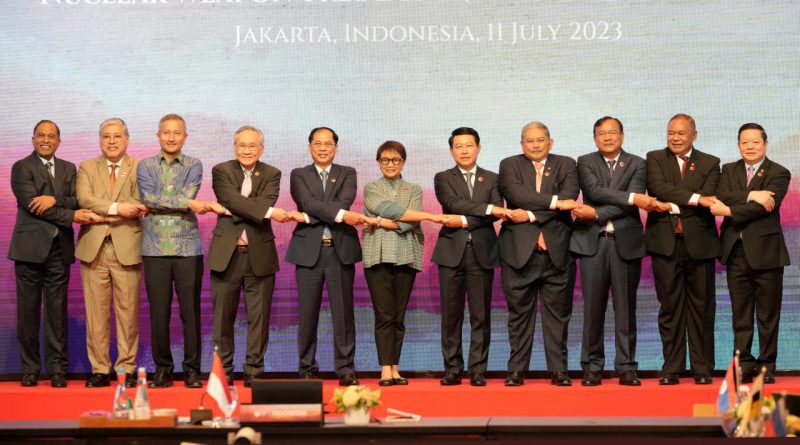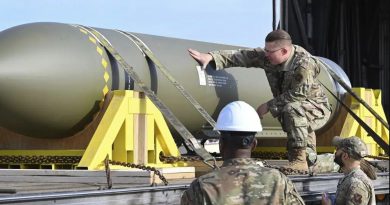ASEAN ministers call for unity in tackling Myanmar conflict
Jakarta (Reuters) – ASEAN foreign ministers on Wednesday called for regional unity in addressing an intensifying conflict in Myanmar, amid doubts over the bloc’s capability to implement a two-year-old peace process that has yet to get off the ground.
The gathering of the Association of Southeast Asian Nations (ASEAN) in Jakarta comes as patience wears thin among its 10 members over Myanmar’s military rulers’ refusal to halt hostilities and start inclusive dialogue, as agreed to by its top general in April 2021.
Myanmar has been beset by fighting since the military seized power in early 2021 before unleashing a bloody crackdown on pro-democracy opponents, which prompted a wave of retaliatory attacks by a resistance movement and ethnic minority armies.
ASEAN chair Indonesia’s Foreign Minister Retno Marsudi said she and her counterparts discussed implementation of the “five-point consensus”, which is the only diplomatic process in play for achieving peace in Myanmar, where the United Nations estimates 1.5 million people have been displaced.
All members emphasised unity on the issue, she said, adding, that “without cessation of violence, there would never be a conducive environment needed for the start of dialogue and the delivery of aid”.
Retno’s remarks come after a Thai-led meeting last month attended by Myanmar’s military leaders who have been barred from high-level ASEAN meetings. Most ASEAN members shunned that meeting, which Thai Foreign Minister Don Pramudwinai defended, saying Thailand was suffering in terms of its border, trade and refugee problems.
On Wednesday, Don revealed he had met with ousted leader Aung San Suu Kyi, who has been in detention since shortly after the 2021 coup and is currently appealing sentences of 33 years in jail.
Suu Kyi was in good health, he said, without providing further details.
The Thai foreign ministry said in a separate statement the two had a “private one-hour meeting”.
Indonesian Foreign Minister Retno Marsudi on Wednesday said the agreed peace plan should remain ASEAN’s focus.
“Any other efforts must support the implementation of the five-point consensus,” she said.
Rizal Sukma, an international relations expert at the Centre for Strategic and International Studies in Jakarta, said it was crucial that ASEAN stick with its plan.
“It provides legitimacy for ASEAN to get engaged in this issue, not to mention intervene,” Sukma said.
“Without the five-point consensus, there is no basis for the intervention.”
Indonesia is also working behind the scenes to kick-start the process by trying to bring all stakeholders together for talks.
Wednesday’s retreat is also expected to discuss the protracted talks on an ASEAN-China code of conduct on the South China Sea, which started in 2017, 15 years after the idea was hatched.
China’s coast guard has been accused by the Philippines of “aggressive acts” several times this year, while Vietnam has complained about a Chinese research ship and a flotilla of suspected militia lingering near its offshore energy projects.
China, which claims sovereignty over most of the South China Sea, maintains it is operating lawfully.
The Jakarta meetings come ahead of Friday’s East Asia Summit and the ASEAN Regional Forum, with top diplomats of the United States, Russia and China among those attending.



